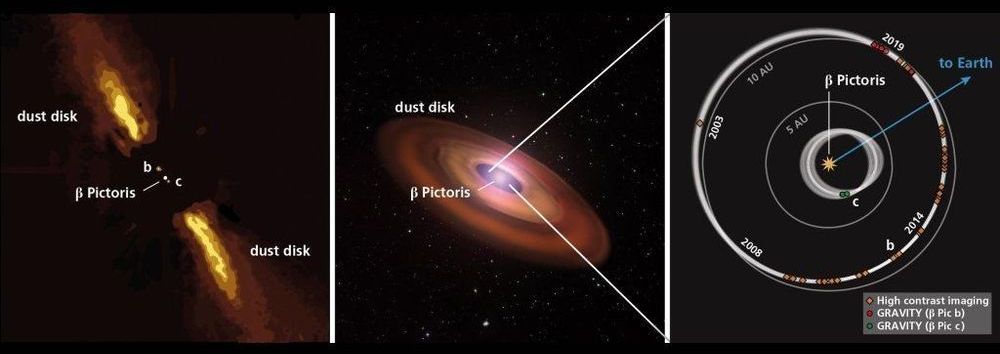Most of the exoplanets we’ve confirmed to date have never actually been seen directly. We confirm their presence by indirect means, such as the effect they have on their host star. But now, astronomers have revealed images of an indirectly found exoplanet.
It’s not just an impressive feat of skills and technology. The combination of methods has given us a superb toolkit for measuring an exoplanet. For the first time, astronomers have measured both the brightness and the mass of an exoplanet — which has given us a new probe into how planets form.
The exoplanet is Beta Pictoris c (β Pic c), a gas giant orbiting the star — you guessed it — Beta Pictoris, just 63 light-years away. It’s a very young, very bright star, around 23 million years old; as such, it’s still surrounded by a lot of dusty debris, and its exoplanets — we’ve confirmed two to date — are just babies, around 18.5 million years old.
